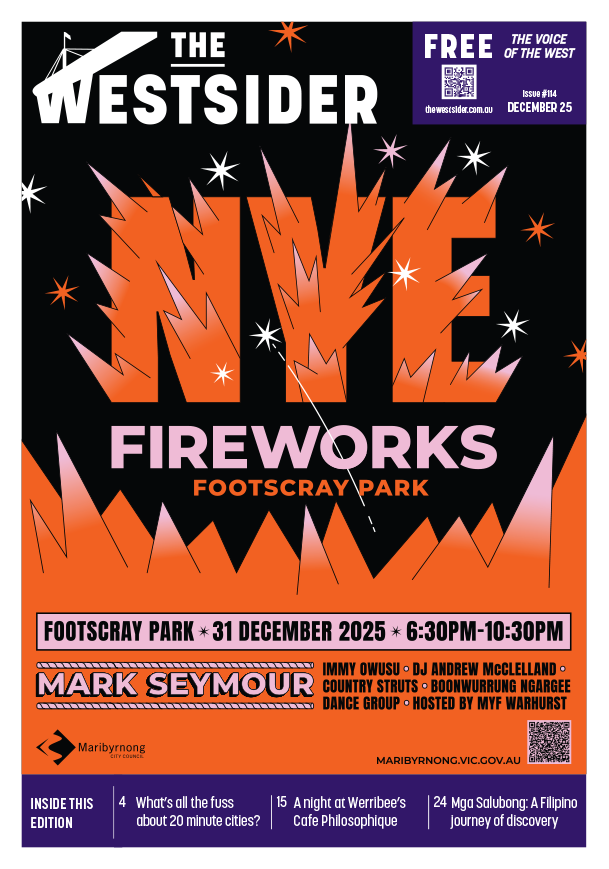Are you a member of a political party, political group, or community advocacy group? (eg; Labor, Liberal, Greens, Socialist, My Place, Angry Victorians, Better West, environment groups, etc)
I am Labor Member. I am General Secretary of Victorian Labor Women’s Network.
What is the most important issue facing your electorate?
The top three most pressing issues are:
- Cost of Living and Community Safety: Many residents are grappling with the rising cost of living, which impacts their ability to afford basic necessities. Addressing this issue requires initiatives that promote economic stability, such as support for local businesses, job creation, and programs aimed at assisting low-income families with essential services. Ensuring the safety and well-being of all community members is paramount. This includes addressing issues related to crime, discrimination, and social isolation.
2. Overcrowded and Underfunded Education Facilities: With a rapidly growing population, we must ensure that our children have access to quality education, including early childhood and STEM programs.
3. Traffic Congestion and Infrastructure: As Wyndham continues to grow, so does the demand for better roads, public transportation, and pedestrian safety measures to reduce congestion and improve accessibility.
Should/how can Council support local businesses?
- Certainly. Council can support local businesses by:
- Streamlining regulations and simplifying permit processes
- Offering financial incentives and grants
- Improving local infrastructure and public spaces
- Providing business education and resources
- Promoting “buy local” campaigns.
- Facilitating networking and collaboration opportunities
- Implementing business-friendly policies
- Offering crisis support during emergencies.
I propose to establish partnerships with local government and industry stakeholders to create a comprehensive investment strategy. This includes promoting Wyndham as a prime location for new businesses by highlighting our strategic location, skilled workforce, and diverse community. Additionally, I would advocate for incentives such as tax breaks or grants for businesses that invest in our region, especially those in sustainable industries and emerging technologies. I will advocate to create Business Hub.
Should/how can Council support local creatives and industries?
The council can play a vital role in supporting local creatives and industries by implementing a variety of initiatives aimed at fostering a vibrant community and stimulating economic growth. Establishing grants specifically for local artists, musicians, and small businesses can help fund projects and events, while organizing and promoting local art and music festivals can showcase the talents of these creatives and attract visitors. Additionally, developing collaborative spaces or co-working environments will encourage networking and resource sharing among local artists and entrepreneurs, complemented by workshops and training programs designed to enhance their skills and business acumen.
Encouraging public art projects, such as murals and installations, can beautify public spaces while providing exposure for local talent, and organizing local markets or fairs will offer artisans a platform to showcase their handmade products. The council can also utilize its communication channels—like newsletters, social media, and websites—to promote local creatives and businesses, creating a directory that encourages residents to support homegrown talent. Collaborating with local schools to integrate arts programs into the curriculum will nurture young talent, while regular forums for local creatives and business owners will ensure their voices are heard in policy-making discussions. By implementing these strategies, the council can create an environment that not only nurtures local creativity but also enhances the community’s cultural fabric and economic vitality.
Should/how can Council help alleviate the impact of climate extremes on local communities and ecosystems?
Council can play a crucial role in alleviating the impact of climate extremes on local communities and ecosystems through a multi-faceted approach. This includes developing resilient infrastructure to withstand extreme weather events, implementing urban greening strategies to combat heat islands, and adopting sustainable planning and development practices. Community preparedness is key, involving the creation of climate adaptation plans and early warning systems. Supporting vulnerable populations and promoting sustainable practices are equally important.
Council should focus on upgrading stormwater systems, increasing tree canopy cover, updating building codes for energy efficiency, and conducting community education on climate risks. Additionally, collaborating with experts and other levels of government can enhance these efforts. By taking these steps, Council can help build a more resilient community that is better equipped to handle climate extremes while also contributing to broader climate mitigation efforts. This comprehensive approach not only protects local ecosystems but also ensures the long-term sustainability and livability of the community in the face of changing climate conditions.
Should/how can Council help alleviate cost of living and homelessness?
The council can take several proactive steps to alleviate the cost of living and homelessness in the community, focusing on both immediate relief and long-term solutions. First, implementing policies that support affordable housing development is crucial, such as incentivizing developers to include low-income units in new projects or repurposing vacant properties for affordable housing. Additionally, the council can provide direct assistance to vulnerable residents through programs that offer rental support, utility subsidies, and access to emergency housing services.
To address the rising cost of living, the council can collaborate with local businesses to promote initiatives like discount programs for essential goods and services, ensuring that residents can access affordable options. Establishing community gardens and local food co-ops can also help reduce food costs while promoting sustainability and self-sufficiency.
Furthermore, enhancing access to essential services, such as healthcare, education, and job training programs, can empower residents to improve their economic situations. The council can partner with local organizations to provide resources that assist individuals in securing stable employment and financial literacy education.
Creating a dedicated task force to focus on homelessness can help coordinate services and outreach efforts, ensuring that those in need receive comprehensive support, including mental health services, addiction treatment, and job placement assistance. By adopting a multi-faceted approach that addresses both immediate needs and systemic issues, the council can make significant strides in alleviating the cost of living and homelessness in the community.
What should Council stop spending money on?
To ensure more effective use of public funds and address pressing community needs, the council should consider stopping or reducing spending in several areas. First, funds allocated to non-essential beautification projects, such as elaborate public art installations and expensive landscaping upgrades, could be redirected towards essential services and community support programs. Additionally, reducing high administrative costs by streamlining bureaucratic processes can free up resources for more impactful initiatives.
The council should also review the usage of community facilities and programs to identify underperforming or underutilized ones, potentially closing or repurposing them to better serve residents. Furthermore, spending on luxury amenities that do not benefit a significant portion of the community should be reconsidered in favor of inclusive projects. Cutting ineffective marketing campaigns that do not demonstrate a clear return on investment can help redirect funds towards more effective community outreach efforts.
It is also important to avoid relying on fines and penalties as a major revenue source, focusing instead on community education to encourage compliance. Lastly, reducing expenditures on extravagant council-hosted events will allow for a greater focus on critical community needs and services. By prioritizing essential services and reallocating funds from these areas, the council can enhance community welfare and foster a more sustainable financial future for the municipality.
In a Nutshell, Non-Essential Beautification Projects, High Administrative Costs, Underutilised Facilities and Programs, Ineffective Marketing Campaigns, Fines and Penalties Revenue Programs, Extravagant Council Events.
Should the public be allowed to ask live, unscripted questions of councillors during council meetings?
Yes, the public should be allowed to ask live, unscripted questions of councillors during council meetings. This practice promotes transparency, accountability, and active engagement between the council and the community. Allowing live questions empowers residents to voice their concerns, seek clarification on council decisions, and express their views on local issues in real time. It fosters a sense of inclusivity, ensuring that community members feel heard and valued in the decision-making process.
Moreover, unscripted questions can lead to more genuine interactions and discussions, as they reflect the real-time concerns and interests of the community. This approach can also help councillors better understand the specific issues facing their constituents and adapt their policies and initiatives accordingly.
To facilitate this, the council can implement guidelines to ensure that the Q&A sessions remain respectful and constructive while providing a platform for meaningful dialogue. Overall, allowing live, unscripted questions during council meetings can strengthen the relationship between the council and the public, enhancing civic engagement and trust in local governance.
Can you please provide a short personal statement detailing what your priorities are if elected, and what your vision for your electorate looks like.
If elected to the Wyndham City Council, my priorities will centre around fostering a vibrant, inclusive community where every resident feels valued and empowered. I envision a Bemin Ward that thrives through accessible education, affordable housing, and enhanced infrastructure, ensuring that our neighbourhoods are safe and welcoming for all families. I am committed to advocating for more sports facilities and recreational opportunities for both children and adults, recognizing the importance of physical activity in our lives. Additionally, I will work to support local businesses and create job opportunities, driving economic growth and resilience within our community.
My vision includes actively addressing the cost-of-living challenges many residents face, through initiatives that provide direct assistance and promote sustainable living. I will prioritize open communication and engagement with constituents, ensuring their voices shape council decisions. Together, we can build a future that not only meets the current needs of our community but also lays a solid foundation for generations to come. I am dedicated to creating a Bemin Ward where everyone has access to the resources and opportunities they deserve, fostering a sense of belonging and pride among all residents..
Mob: 0433 253 930
Email: nusratborsha2024@gmail.com



